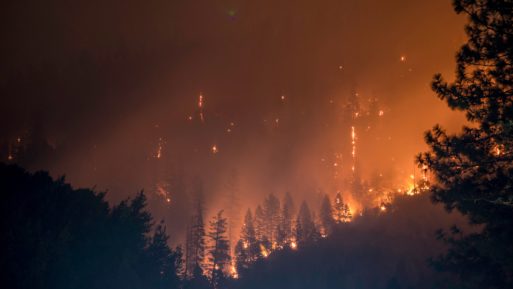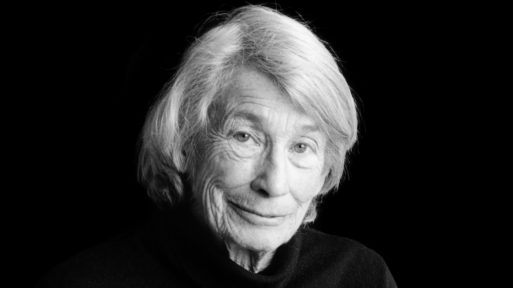 Mary Oliver is a contemporary American poet widely recognized for her descriptive poetry that draws on metaphors from the natural world, typically from the forests of her adopted Massachusetts. One particularly resonant poem from her 1983 collection “American Primitive” is “In Blackwater Woods,” in which Oliver simply and beautifully relays the connection between the human experience and the loss of her beloved forest to a fire.
Mary Oliver is a contemporary American poet widely recognized for her descriptive poetry that draws on metaphors from the natural world, typically from the forests of her adopted Massachusetts. One particularly resonant poem from her 1983 collection “American Primitive” is “In Blackwater Woods,” in which Oliver simply and beautifully relays the connection between the human experience and the loss of her beloved forest to a fire.
The poem begins describing the transformation Blackwater Woods goes through during a fire: the imagery is rich and thorough, full of fleeting, mutable images of beauty that feel both transcendent and melancholy.
“Look, the trees
are turning their own bodies
into pillars
of light,”
and
“The long tapers
of cattails
are bursting and floating away over
the blue shoulders
of the ponds”
Oliver’s descriptions do more than just paint a picture of a forest on fire — they show us her deep, personal connection to the forest, and the sadness, loss and even confusion she experiences when it burns.
“everything I have ever learned
in my lifetime leads back to this: the fires
and the black river of loss
whose other side
is salvation, whose meaning,
none of us will ever know.”
The line “whose other side/is salvation/whose meaning/none of us will ever know” could speak of the soul’s journey of one life to the next, and also the human journey through loss to acceptance.

Photo Credit:
Wisdomdaily.com
The final two stanzas of the poems is where Oliver brings the reader to the meat of her message, what she has been building towards since the beginning:
“You must be able
to do three things:
to love what is mortal;
to hold it
against your bones knowing
your own life depends on it;
and, when the times come to let it go,
to let it go.”
The truth she speaks at the end of this poem hits hard. Yes, to live is to love, but it is also to lose. Here Oliver offers up a celebration of life, encouraging us to embrace both love and loss, as you cannot can have one without the other.

 “In Blackwater Woods” by Mary Oliver
“In Blackwater Woods” by Mary Oliver


 First the Wealth Gap, Now the U.S. Has a Growing Health Gap
First the Wealth Gap, Now the U.S. Has a Growing Health Gap
 How to Comfort A Dying Loved One
How to Comfort A Dying Loved One
 Our Annual Seven Holiday Gifts for Someone Who Is Grieving, 2024 Edition
Our Annual Seven Holiday Gifts for Someone Who Is Grieving, 2024 Edition














